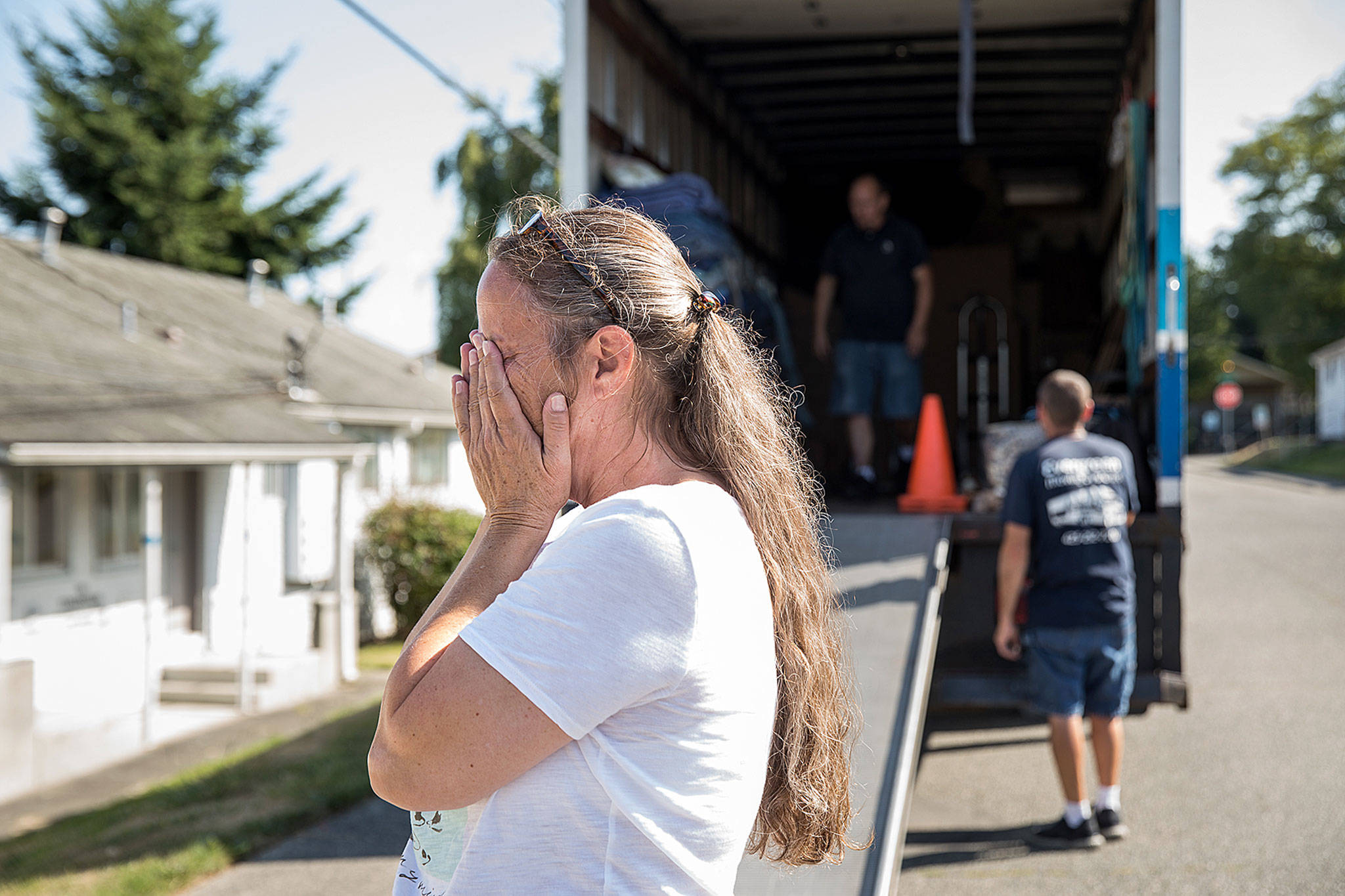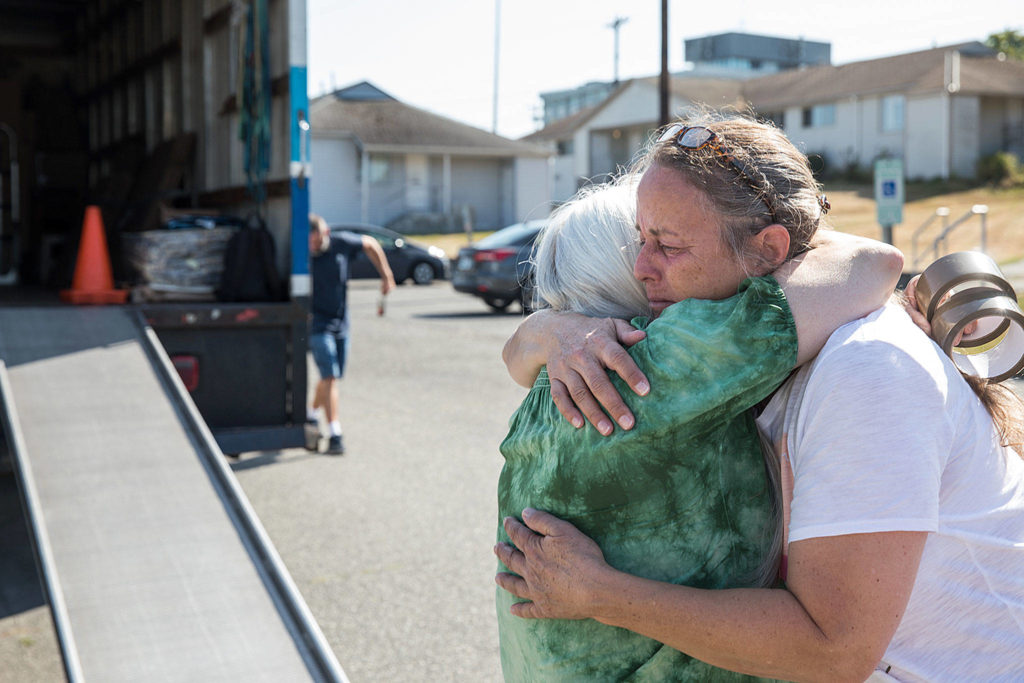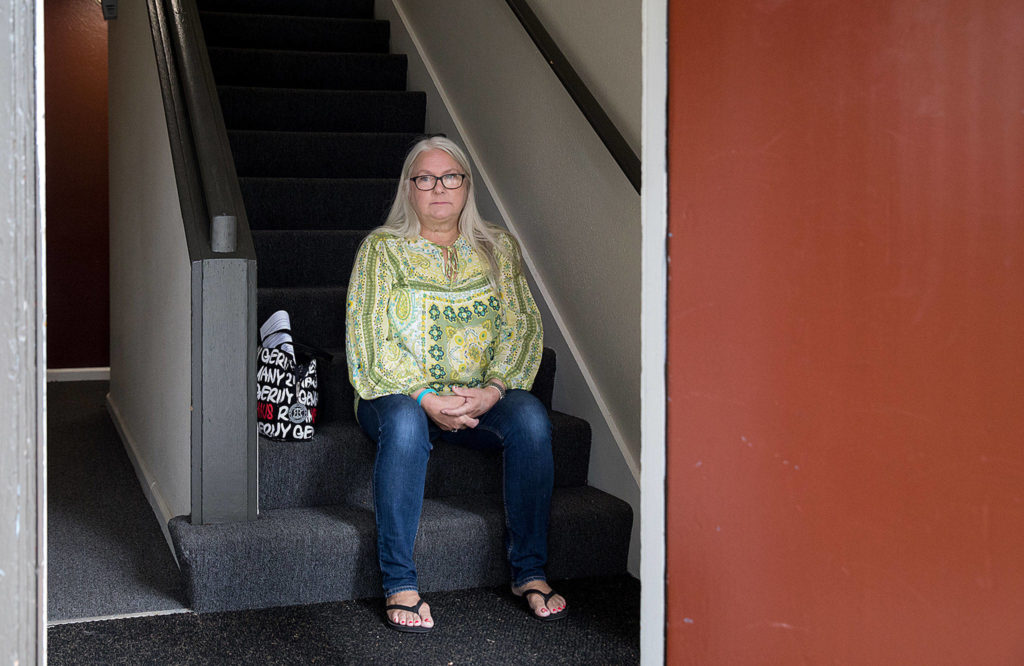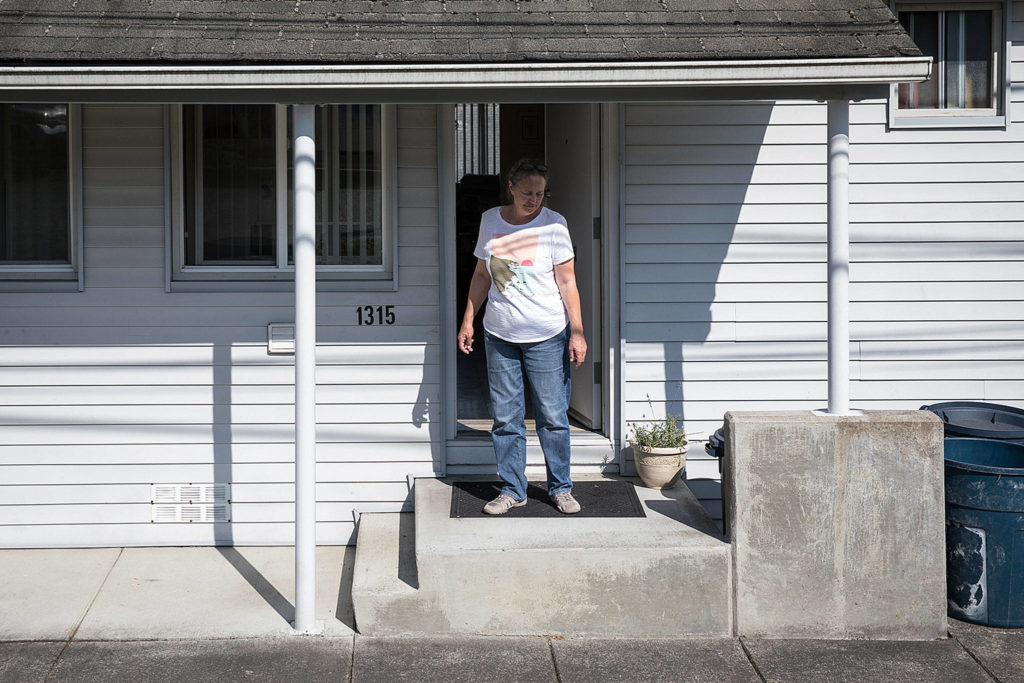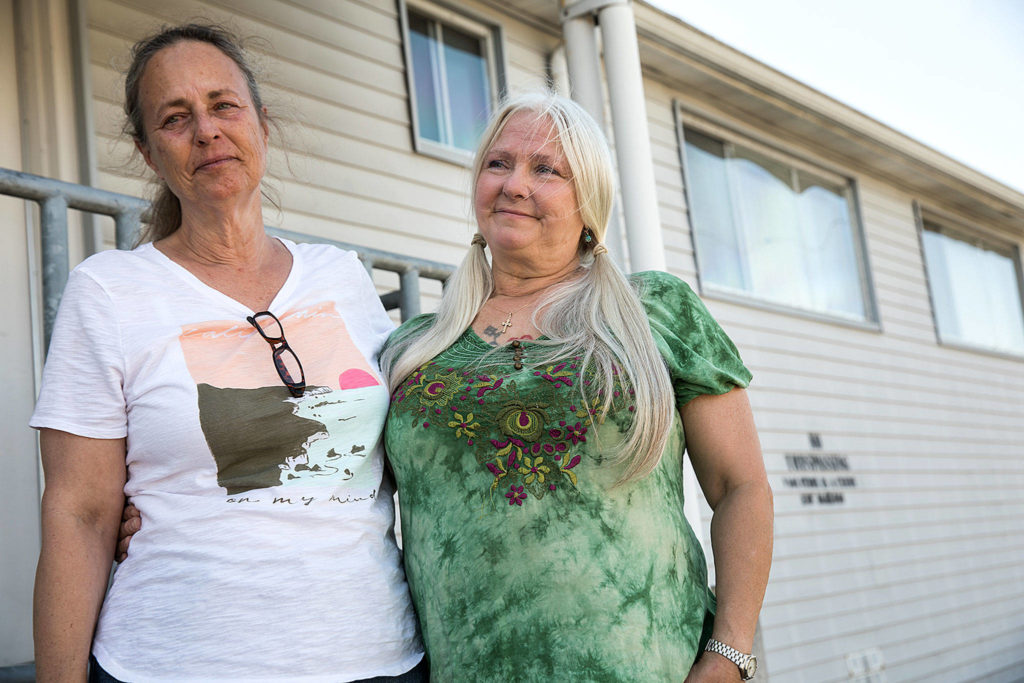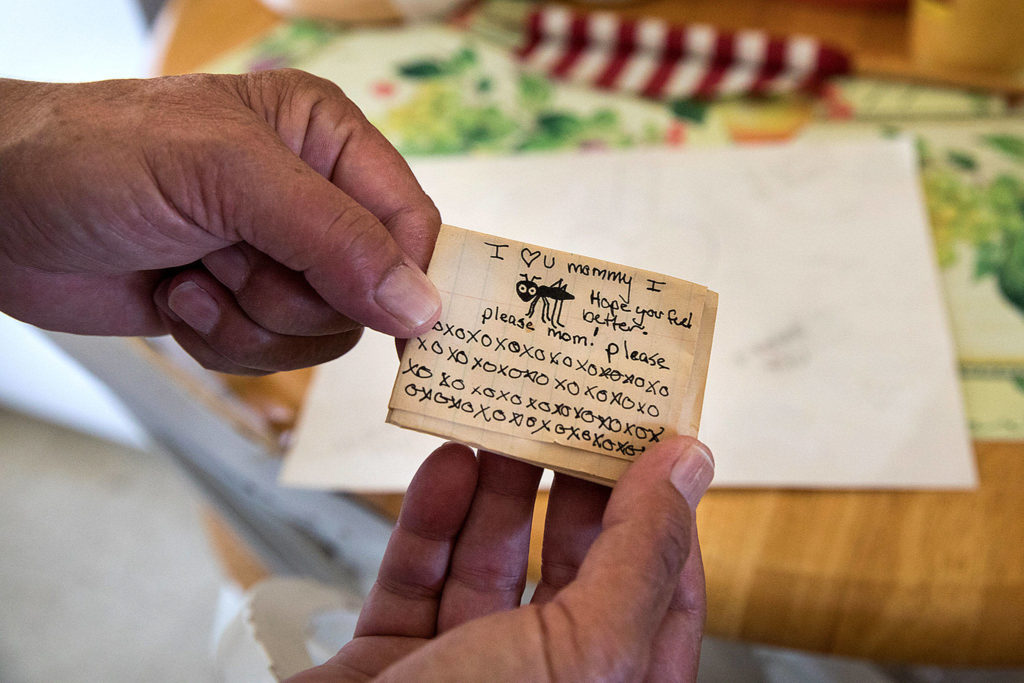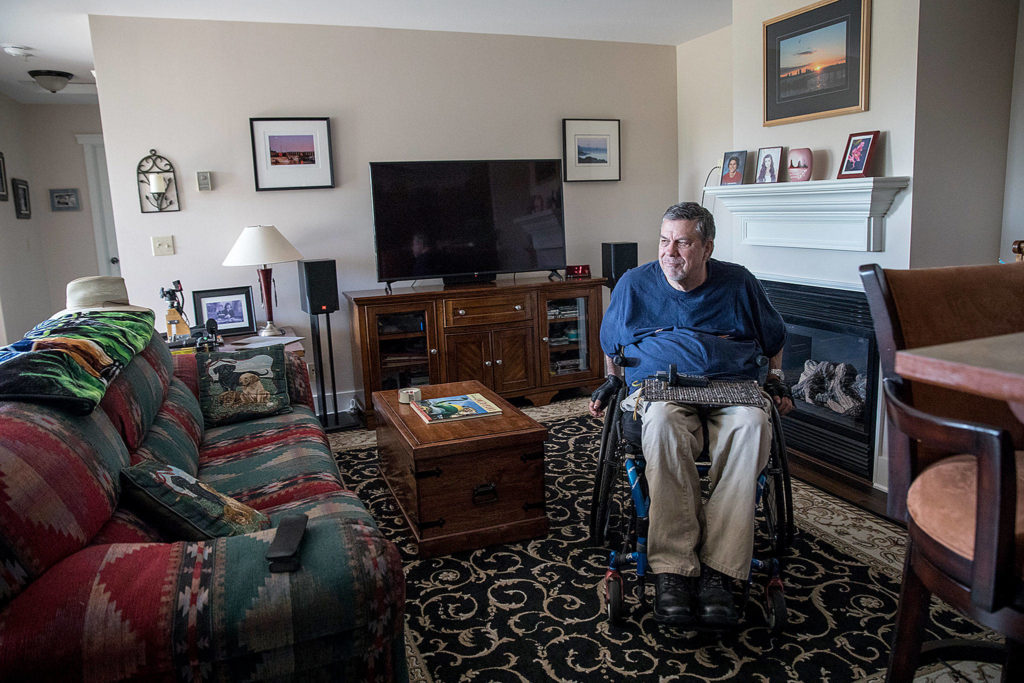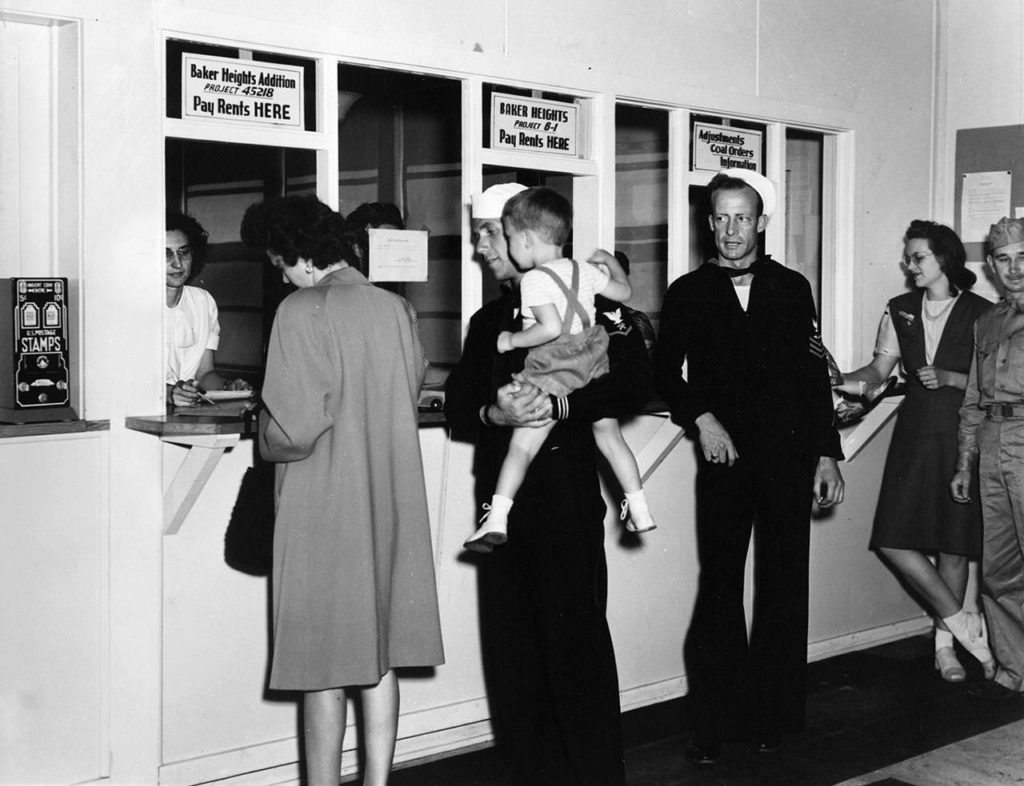EVERETT — Kathleen Mullen spilled tears as the moving truck drove away.
Though she knew this had been coming for years, Mullen wasn’t prepared to leave her home and community of almost three decades.
For most of that time she’s lived just a few doors down from Beverly Bowers, in a modest bungalow in Baker Heights, a public housing development in Everett’s Delta Neighborhood.
The two single moms grew close as they raised their children in to young adults together, often filling in as last-minute babysitters or sharing meals.
Standing in the middle of a mostly-deserted Hemlock Street, they hugged as the big blue and white truck disappeared around the corner.
Bowers and Mullen are among the last residents to leave as the aging World War II-era housing heads toward demolition. Operated and owned by the Everett Housing Authority, the long-planned closing was slow in coming.
With most households now gone, the streets are quiet, playgrounds empty. Few children walk the long blocks to the Everett Boys & Girls Club. The vacant homes are boarded up, their weathered sides stamped with black-ink warnings not to trespass.
“It’s a neighborhood we won’t see anymore,” Mullen said. “We had a community here, we had neighbors we knew. It’s never going to be the same.”
“It was a place we could raise our kids and survive,” she added.
They have known each other for so long, Bowers, a security guard, and Mullen, a caregiver, have forgotten how they met. Now the two will be going their separate ways, as are the other 244 Baker Heights families already mostly dispersed across Everett and Snohomish County.
“A community is being disassembled,” Bowers said. “It’s such an emotional journey.”
A long history
The Everett Housing Authority built Baker Heights in 1943 for military personnel, workers in the shipbuilding and aircraft industries, their families and others flooding into the city to help with the war effort. Newcomers could reside there until they could find suitable homes.
The plan always had been for the mission to shift to housing low-income families once the war ended, according to early housing authority documents.
Decades later, the 76-year-old Baker Heights complex had lived beyond its useful life, deemed too expensive to renovate and ineligible to receive funding from the U.S. Department of Housing and Urban Development.
Around 2007, officials discussed plans to close the units, but shelved the idea when the recession hit soon after, said Steve Yago, acting director of development of acquisitions.
In the last few years, officials revived those plans and since 2017, the housing authority has been moving tenants from the 15-acre complex. Each household received a housing voucher and either a relocation stipend or help with moving and packing.
Washington State University plans to buy about two-thirds of the land to expand its branch campus. The remainder will be used by the housing authority to build about 160 new units after existing buildings are razed.
The goal is to have all residents out by the end of September.
For many, that thought is bittersweet.
“Having to leave the family you created is hard,” said Michelle Farnham, one of the housing authority’s relocation assistants.
Some found a place better suited for their needs, Farnham said. A few took the opportunity to move out of state closer to family.
A fresh start, for some
The Friendship Garden, once a community gathering place, is still lovingly tended. Tomatoes almost ready to be picked hang from the vine, flowers dot the space adding bursts of color.
Gardeners, some who have moved out of Everett, still return to weed and water.
For long-time resident John Mierke, who moved into Baker Heights in 1993 shortly after an accident left him in a wheelchair, the move was a fresh start.
His new place is closer to Grand Avenue Park — a favorite place Mierke often visits as a vantage point for photographs. The trek from Baker Heights to the park was an uphill push of nearly one and a half miles.
His new location better suits him, even if Mierke has to navigate an elevator to reach his second-floor unit, rather than the direct street-level access he had before. Now it’s a flat half-mile roll to the park. And soon, he’ll have easy access to the waterfront once the Grand Avenue Park Bridge is completed.
“I’ll miss the neighbor-to-neighbor connection that you get with ground-floor units,” he said. “It takes time to immerse ourselves into the community.”
Michael Hill also is ready to make his new neighborhood home, despite his strong ties to the Delta Neighborhood.
For years he was part of the local Community Emergency Response Team, volunteers who help with emergency preparedness.
The former Army National Guard medic has already thrown himself into a similar role in his new neighborhood of Pinehurst.
“It takes time to adapt, it was really challenging at first,” Hill said.
He arrived at his new place in early June, and already the signs of his move have disappeared. No half-unpacked boxes litter his floor.
“I understood why we have to move,” he said. “Those buildings — 76 years old — had lived their life out.”
Still, anxiety ran high when the relocation process began.
“There were a lot of unanswered questions,” he said. “There were residents that have never filled out a renters’ application before.”
He lived near the Friendship Garden, which will be recreated elsewhere when construction on the Baker Heights site begins.
“It’s not only developed into a garden but a community asset,” Hill said.
Gardeners shared vegetables and flowers from their plots with him.
“Those are things money can’t buy,” Hill said.
He hopes to stay connected with the Delta Neighborhood and the friends he’s made.
“It’s not as easy as when people were just a few doors down,” Hill said. “Delta will always be my home, but this is my new home.”
At Beverly Bowers’ place, a blooming lavender plant attracted hummingbirds and bees on a bright, hot day in July a few weeks before her move-out date. Her two black and white cats slept in what little shade was available. Inside, boxes were half-packed as Bowers sorted through the last two decades of her life.
She had hoped to move into a similar unit.
“I wanted to be able to open my door and see grass and my neighbors,” Bowers said.
For Bowers and Mullen, neighbors of 20-plus years and friends for near as long, the idea of leaving, of being separated, is almost too much to bear. Both hope to move back once the housing authority rebuilds on a portion of the land.
“My fondest memories are feeling like I belonged,” Bowers said.
Lizz Giordano: 425-374-4165; egiordano@heraldnet.com; Twitter: @lizzgior.
Talk to us
> Give us your news tips.
> Send us a letter to the editor.
> More Herald contact information.
